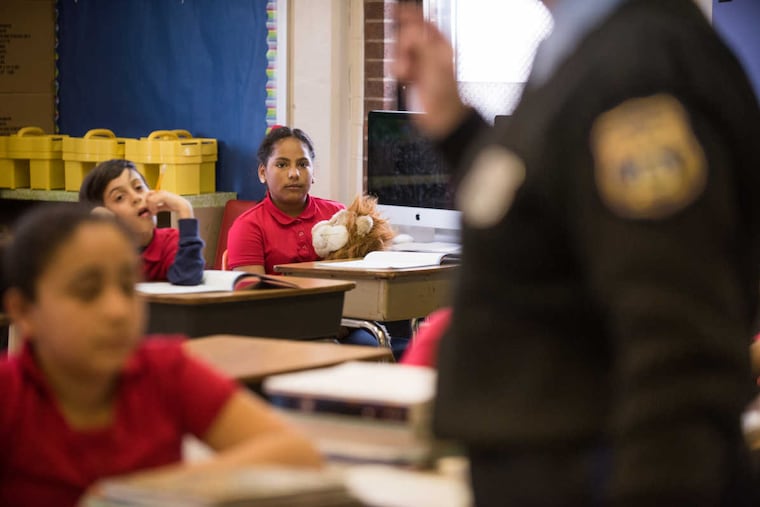This cheap intervention could prevent more teen drug use than ‘Just Say No’ | Brain Trust
Engaging parents in their teens' academic life is more effective than trying to scare them.

The issue: For decades the United States obsessed over preventing drug use among teenagers. First lady Nancy Reagan famously championed the “Just Say No” campaign throughout the 1980s. But, the generation that grew up on “Just Say No” has been hit by a crisis of addiction and overdose death that claimed the lives of close to half a million people in the last decade. “Just Say No” just did not work.
And yet, preventing drug use among teenagers — or at least delaying initiation of drug use — is a laudable goal.
A new study from the department of medicine at the University of California-Los Angeles, conducted by Dr. Mitchell Wong and his colleagues, suggests that a more effective — and cheaper — way to prevent drug use among early teens is to more regularly engage parents in their teen’s academic life.
The bottom line: “The simple intervention of telling a parent about how their kids are doing academically appears to reduce initiation of alcohol and marijuana,” Wong says.
How they got there: A previous study showed that communicating with parents frequently about their child’s school performance increased academic achievement. “If a student misses an assignment or gets a poor grade in a class, that information typically doesn’t get relayed to the parent in any timely way," Wong explains. “The student knows about it, the teacher knows about it, but the parents usually don’t find out about how the kid is doing until the end of the quarter.” Wong and his colleagues were curious if giving parents easy access to regular, incremental updates would have an impact on the teen’s behavioral health.
How did researchers study this question? The team enrolled 318 students who started seventh grade at four L.A. public schools, and followed them for two years. The students were randomly divided into two groups — a control that received the regular school communication and the intervention group. Parents of the students in the intervention group chose a mode of communication (text, call, or email) and the language in which they want to receive weekly updates.
What did they find? After two years, at the end of eighth grade, the researchers asked students about their drug use. "We found that 18 percent of the control group and 10 percent of the intervention group had ever used alcohol or marijuana,” says Wong. The simple intervention of sending out weekly messages to parents cut initiation of drug use by almost half.
Wong says that the results confirmed his expectations. “Parents naturally want to help the kids do better in school. ... If you’re monitoring your kid, you’re obviously involved in a way. But it’s probably just the fact that you’re paying attention to what they’re doing that conveys to the child that there’s someone who cares about them." This could be the driver that keeps some teens on track academically and away from drugs.
Why does this matter to Philly? According to the Philadelphia Department of Public Health, there are currently about 75,000 people using heroin in Philadelphia. There are tens of thousands of others using prescription drugs, stimulants, and alcohol in ways that are harmful to themselves. Research suggests that most of the people currently in addiction started drug use before the age of 17. That’s not surprising considering how prevalent drug and alcohol use is among Philly high schoolers. According to the Centers for Disease Control and Prevention, in 2017, 53 percent of Philadelphia ninth graders had already had a drink of alcohol and 34 percent had already used marijuana.
The vast majority of the teens who use drugs and alcohol will not develop an addiction, but it is hard to know in advance which kid is just experimenting and which kid is developing a harmful relationship with a substance. According to Wong, “kids who initiate substance use earlier, are at a much higher risk of developing a problem later on.”
From a public health perspective, and an education achievement perspective, the intervention is a slam dunk — especially considering that the cost was $15 a year per student. Implementing the intervention to every one of the more than 50,000 seventh to 12th graders in Philadelphia could cost close to a million dollars. That is far cheaper than other drug use prevention programs that both show lower efficacy and have more modest effects. According to Wong, the intervention’s cost can become essentially zero if it is automated through schools’ electronic grade-book systems.
The takeaway: Not doing well in school, and hiding that from parents, can be stressful, lonely, and frustrating for a 13- or 14-year-old — all feelings that can motivate drug use. Instead of spending a ton of money to scare kids about using drugs, investing in the relationship of teenagers with their parents is a more productive and helpful intervention that could have a measurable impact on preventing teen drug use.
Brain Trust is a new biweekly column that looks at how new research affects Philly. Ideas? Suggestions? Email Abraham Gutman at agutman@inquirer.com.